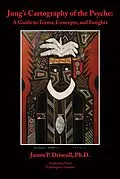Carl Jung was a great explorer and mapper of the unconscious realm that Sigmund Freud had discovered. Jung created a copious vocabulary of psychological terms and concepts that help us understand features of the psyche that were previously overlooked or difficult to define. Taken together, his terms and concepts offer a basic cartography of the human psyche. In contrast to clinically oriented Jungian glossaries, this work delineates the complex interrelationships of his ideas showing how they intermesh within a coherent system. It carries Jung's seminal insights to an array of subjects that have unfolded in surprising directions, including, for example, revolutionary ideas on the self, time, and the Godhead. The commentaries James P. Driscoll offers in Jung's Cartography of the Psyche are helpful for applying Jung to literature, philosophy, religion, the political domain, and other aspects of the human experience. They comprise an introduction and guide that demonstrates Jung's scope and depth as well as the rewards of studying him further.
Autorentext
In the 1990s James Driscoll, Ph.D., led the AIDS movement for FDA reform. He is author of scores of articles on a wide range of subjects and four previous books, most recently Shakespeare and Jung: The God in Time and Shakespeare's Identities. As an activist for AIDS prevention and gay rights, he has distinguished himself with trenchant criticisms of an outmoded, bureaucratized FDA and of political opportunism masquerading as religious conviction.
